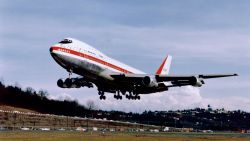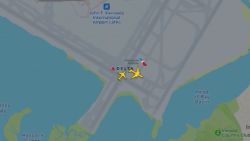While multiple airlines have temporarily suspended all flights to China due to the coronavirus outbreak, those that are still flying to the country are adopting a series of measures to prevent the spread of the deadly disease.
Hong Kong flag carrier Cathay Pacific announced it will no longer offer hot towels, pillows, blankets and magazines to passengers on Cathay Pacific and subsidiary Cathay Dragon flights to and from mainland China.
Trolley services and in-flight sales will also be suspended.
Passengers traveling in premium economy and economy classes will receive hot hand-held snacks served in a disposable bag as opposed to the usual hot tray meals.
Instead of getting each dish served individually, passengers in business and first class will receive multi-course meals served in one tray.
“These changes will enable us to provide enhanced protection for our customers and crew while at the same time continuing to deliver a satisfactory inflight experience for passengers,” says the official statement from Cathay Pacific.
According to Hong Kong Airport flight data, on January 30 Cathay Pacific/Cathay Dragon operated 55 scheduled flights to mainland China.
Other airlines are taking similar measures to reduce the contact between their crew members and travelers.
Hong Kong Airlines has also stopped offering blankets and pillows for all classes on flights to and from mainland China.
Passengers won’t be offered mixed nuts, bread or hot drinks on the flights either. Inflight entertainment will be limited to the newspapers and reading materials inside the seat pocket.
Cabin crew wear masks and gloves

Thailand has reported 14 cases of the disease – the highest number outside of China.
Thai Airways – together with subsidiary THAI Smile – said in a media briefing on Tuesday that its cabin crew will wear masks and gloves on flights when flying to high-risk areas.
All aircraft, including the cockpit, will undergo a 45-minute disinfection period after returning from mainland China. Some parts of the planes, including the passenger seats, pockets and inflight entertainment systems, will go through a deep cleaning.
Other measures to prevent the spread of the coronavirus include screening passengers for symptoms both on the ground and during flights.
Japan’s All Nippon Airways, the largest airline in the country, has also notified passengers on its website that staff on flights to Chinese cities including Beijing and Shanghai will be wearing masks.
“In light of the large numbers of people wearing them, cabin attendants working on the flights have been wearing masks on board to reassure passengers who are using our services,” says the notice.
Flights canceled, reduced

Though all airlines have canceled flights to and from Wuhan, which is under lockdown, some airlines have taken things a step further by canceling or reducing flights to other major cities in China.
US carrier United Airlines announced Tuesday that it has canceled flights from February 1 through February 8 between US hubs and Beijing, Hong Kong and Shanghai.
British Airways suspended all direct flights between Britain and China from Wednesday.
Other airlines that have temporarily suspended flights to China include Lufthansa, Air France, Turkish Airlines, Lion Air, EgyptAir and Air Canada.
Meanwhile, airlines such as AirAsia, Singapore Airlines, Finnair, China Airlines, EVA Airways and Silk Air have announced that they will reduce capacity on selected routes to China.
Many airlines have offered waivers on change fees or the option to cancel for credit on a future flight.
Travelers with upcoming flights should check with their airlines and look for advisories posted on carriers’ websites.
CNN’s Marnie Hunter and Kocha Olarn contributed to the report.




















